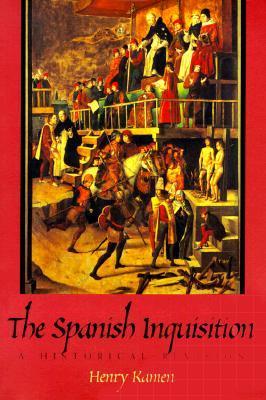Book review: The Spanish Inquisition by Henry Kamen

“No one expects the Spanish Inquisition”… to have been much, much more lenient on people acccused of witchcraft than the secular courts of northern Europe. But one of the things Henry Kamen does, in this seminal work, is show that if you were a woman accused by your neighbours of trafficking with the devil, you would have been much safer to have that accusation levelled at you in Spain than in Germany or England. This is not to say that the Spanish Inquisition was a kind institution but it was much more concerned with the law and the rules of evidence than witch courts elsewhere in Europe. Indeed, as the Inquisition had decided, on theological grounds, that the claims advanced for the powers of witches were spurious, it therefore found that people advancing those claims against their neighbours were, of necessity, either mistaken or slanderers. Almost everyone accused of witchcraft and brought before the Inquisition was found not guilty and released.
One of Kamen’s great achievements in this book, though, is to show how the interweaving of the paranoia of various levels of Spanish society at having their historical rights taken away interweaved with suspicion of the families of converted Jews and Moors to produce the conditions in which the Inquisition flourished as an agent of royal power. It was very much an instrument of the Spanish monarchy, but one whose focus was on the conversos rather than witches and devils.
It’s also clear from Kamen’s book that the larger part of the Inquisition’s sinister reputation is down to the propaganda wars between Protestant and Catholic Europe, with the Protestant kingdoms latching onto the Inquisition as a symbol of all that they detested about Catholic Europe (even while conducting worse witch hunts themselves).
A highlight of the book is the account of the visitation of Inquisitor Alonso de Salazar Frias to a city where fifty plus people had been accused of witchcraft, with some already executed. Appalled by the lack of care shown for the laws of evidence, Alonso had all the reports and evidence brought before him, considered it all, freed all the surviving accused and put the chief prosecutor on trial himself. Not what one would expect from an Inquisitor!
For anyone interested in the Inquisition and Spain, this is a key book. Highly recommended.
0 Comments